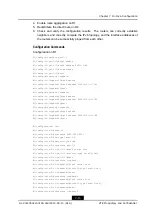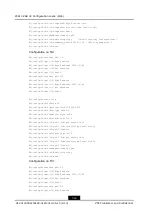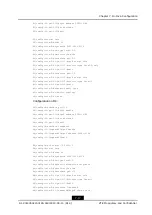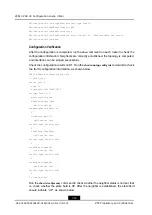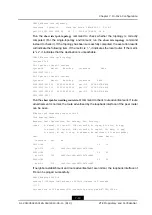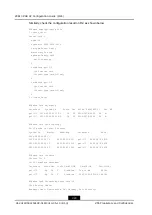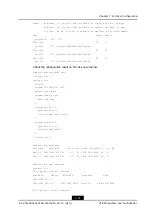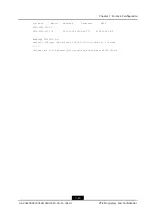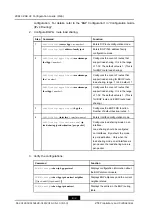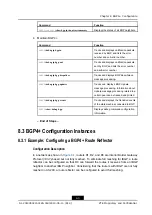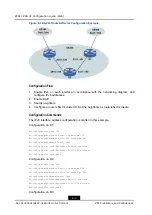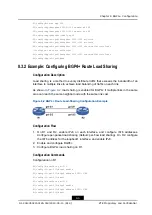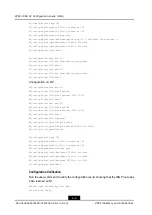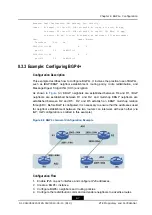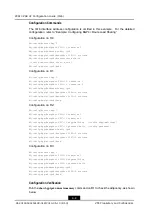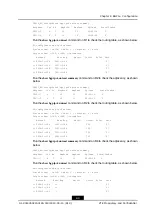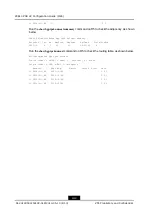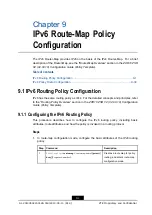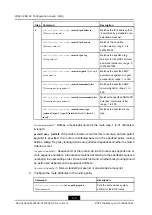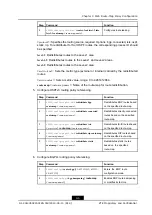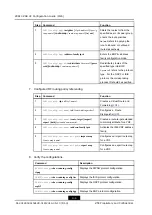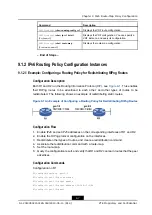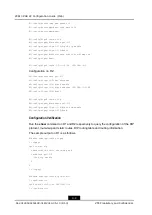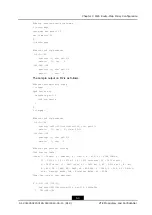
Chapter 8 BGP4+ Configuration
R3(config)#router bgp 200
R3(config-bgp)#neighbor 2010::125 remote-as 200
R3(config-bgp)#neighbor 3331::101 remote-as 200
R3(config-bgp)#address-family ipv6
R3(config-bgp-af-ipv6)#neighbor 2010::125 activate
R3(config-bgp-af-ipv6)#neighbor 3331::101 activate
R3(config-bgp-af-ipv6)#neighbor 2010::125 route-reflector-client
/*Configure the route reflector*/
R3(config-bgp-af-ipv6)#neighbor 3331::101 route-reflector-client
R3(config-bgp-af-ipv6)#end
8.3.2 Example: Configuring BGP4+ Route Load Sharing
Configuration Description
Load sharing is a method to evenly distribute traffic that exceeds the bandwidth of an
interface to multiple links to achieve load balancing of traffic on each link.
As shown in
, load sharing is enabled for BGP4+ if multiple links in the same
area can reach the same neighbor node with the same link cost.
Figure 8-2 BGP4+ Route Load-Sharing Configuration Example
Configuration Flow
1.
On R1 and R2, enable IPv6 on each interface, and configure IPv6 addresses.
Configure per-packet load sharing (default: per-flow load sharing). On R2, configure
the IPv6 address for the loopback1 interface, and enable IPv6.
2.
Enable and configure BGP4+.
3.
Configure BGP4+ load sharing on R1.
Configuration Commands
Configuration on R1:
R1(config)#interface gei-2/1
R1(config-if-gei-2/1)#ipv6 enable
R1(config-if-gei-2/1)#ipv6 address 2000::1/64
R1(config-if-gei-2/1)#exit
R1(config)#interface gei-2/2
R1(config-if-gei-2/2)#ipv6 enable
R1(config-if-gei-2/2)#ipv6 address 2001::1/64
R1(config-if-gei-2/2)#exit
8-5
SJ-20140504150128-018|2014-05-10 (R1.0)
ZTE Proprietary and Confidential

